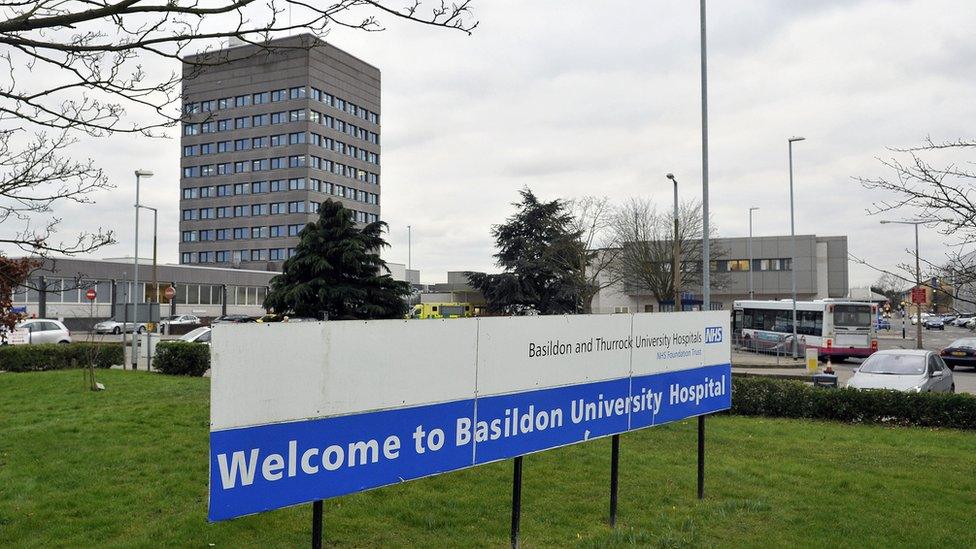Basildon University Hospital: 70% of blood tests contaminated
- Published

Basildon University Hospital had a blood culture contamination rate of 70%, although the NHS trust said that was from a small sample
More than two-thirds of blood tests taken at an Essex hospital to identify life-threatening illnesses were contaminated, healthcare leaders heard.
Local clinical commissioning group (CCG) boards were told Basildon University Hospital had a blood culture contamination rate of 70%.
The report said the "recommended standard benchmark should be less than 3% of blood cultures taken".
The hospital said the figure was 4.1% when using a larger sample.
Work was being carried out to reduce the rate, the board meeting heard.
The meeting, on 24 March, was of the boards of Basildon and Brentwood, Castle Point and Rochford, Mid Essex, Southend and Thurrock CCGs, external.
It heard staff shortages were allegedly causing the issue with "blood cultures", which are used to detect germs, fungi or bacteria in the blood ahead of operations, the Local Democracy Reporting Service said.
The tests taken at Basildon University Hospital were carried out in the year to January 2022.
Katherine Kirk, chairman of quality and governance committee at Basildon and Brentwood CCG, said it was "clearly a major failure".
"If I'm understanding this right and it's about the effectiveness of blood tests, what's going on?" she asked.
The meeting heard test figures for the Mid and South Essex NHS Foundation Trust's other hospitals, Southend and Broomfield, were yet to come back.
Work was under way between the infection control doctors and microbiologists across the three sites to agree a competency-based assessment for blood cultures to help decrease contamination rates, it also heard.
'Surprisingly high'
A hospitals' trust spokesperson said: "We regularly audit what we do to ensure that we are providing safe and effective care and treatment.
"An audit of a small number of blood cultures showed a surprisingly high number of contaminated samples.
"We then carried out a wider audit - looking at 11,356 samples - and that showed that 4.12% had contaminants.
"That is still above the 3% that is expected, and could indicate that there was an error made when the sample was taken. We are providing further education and training to staff."
The NHS trust added that the results were not indicative of infection in patients and did not represent increased infections in patients or any harm caused.

Find BBC News: East of England on Facebook, external, Instagram, external and Twitter, external. If you have a story suggestion email eastofenglandnews@bbc.co.uk, external